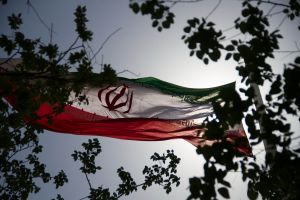This survey finds most Americans still consider Iran’s nuclear program a critical threat, but at lower levels before 2015 nuclear deal.
Introduction
The 2019 Chicago Council Survey, conducted in June, finds a majority of Americans still considered Iran’s nuclear program a critical threat, but at lower levels than before the signing of the 2015 nuclear deal.
Key Findings
After potentially setting the stage for a historic meeting between Tehran and Washington, Iran has pulled back on the idea in the wake of US allegations that Iran was involved in the September 14 attacks against Saudi oil installations. For his part, President Trump announced new sanctions against Iran, although Saudi and American experts are still analyzing intelligence to determine the exact culprit. The 2019 Chicago Council Survey, conducted in June, finds a majority of Americans still considered Iran’s nuclear program a critical threat, but at lower levels than before the signing of the 2015 nuclear deal. While majorities favor diplomatic and economic measures to punish Iran if it withdraws from the nuclear agreement, there is more limited support for military action.
- At the time of this survey, six in ten Americans (57%) consider the Iranian nuclear program a critical threat and 77 percent oppose accepting that Iran will acquire nuclear weapons.
- If Iran abrogates the terms of the Iran nuclear deal and restarts development toward a nuclear weapon, around half support conducting cyberattacks against Iran’s computer systems (52%) and airstrikes against Iran’s nuclear facilities (48%); just 40 percent back sending US troops to destroy Iran’s nuclear facilities. In a separate question, seven in ten favor using US troops to prevent Iran from obtaining a nuclear weapon.
- Eight in ten (81%) support continuing diplomatic efforts to get Iran to stop enriching uranium and imposing tighter economic sanctions on Iran (78%). And while only a minority, a third of Americans (36%) favor trade with Iran, up from two in ten (20%) in 2010.


